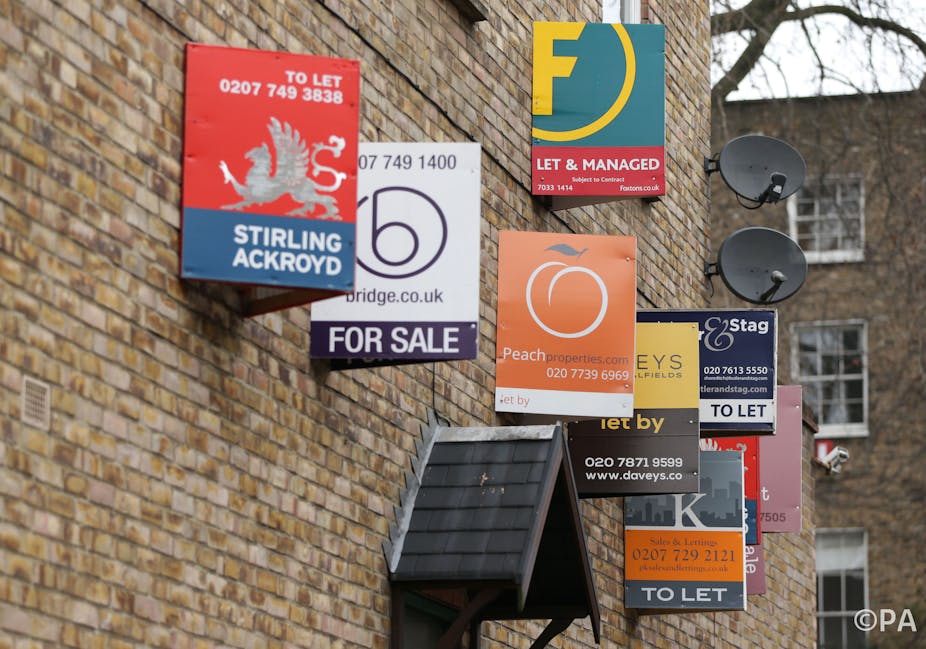The Conservative Party has pledged to extend the Right-to-Buy scheme to housing association tenants in England, offering discounts worth tens of thousands of pounds depending on length of tenancy and where you live.
Could this new announcement, which David Cameron claims proves that the Conservatives “are the party of working people, offering you security at every stage of your life”, be an appealing prospect for England’s most disadvantaged young people? After all, they may well be the least likely to ever get a foothold in the property market.
The latest Generation Rent report found that 39% of 20-45 year-olds either don’t know or haven’t decided whether the current Help to Buy and New Buy schemes have had a positive impact on the first time buyer market.
Despite increased assistance for first-time buyers over the past few years, our research found that the proportion of young people who don’t want to own a home increased over the last five years. At the same time the proportion of those who are likely to become first-time buyers has fallen over the same period.
The proportion of young people who are saving to buy a property has fallen by six percentage points since 2011. This drop could be because young people no longer see the point in saving for a deposit; our findings show that high property prices, the size of the deposit required and low income were the three most significant barriers to buying a property for young people.
Giving up on buying
The combination of high property prices and years without real-terms wage growth means that young people are unable to save the amount required for a deposit or to get a big enough mortgage to buy a property. The time it takes to save for a deposit has jumped, from an average of 3.6 years in 2011 to 5.35 years in 2014. The Generation Rent report found that 65% of young people reported being put off applying for a mortgage due to fear of being turned down (an increase of 10 percentage points from 2011). Nearly 80% believed banks do not want to lend to first-time buyers, and 21% believed it is virtually impossible for first-time buyers to obtain a mortgage.
With this in mind, could extending the Right-to-Buy scheme to housing association tenants in England help improve the situation for aspiring young homeowners who currently find themselves in social housing?
Enabling people who live in council or other social housing to purchase their homes at a discounted rate would certainly help to eliminate two of the three biggest barriers that young people face – namely high property prices and the size of the deposit required – and could help this disenfranchised group become homeowners.
Forgotten renters
Cameron’s announcement may help to reinvigorate enthusiasm for home-ownership among a section of young people but what about those who are not in social housing and those waiting for years to get a council house? An already depleted pool of social housing has played a part in forcing young people into the private rental sector, with 49% of those aged 16-34 in this category, overtaking the number of owner occupiers in that age group in 2011-12.

Between 2003-04 and 2013-14, the proportion of younger households in the private rented sector more than doubled. This new announcement will not help those who are privately renting and unable to buy a home, and may serve to alienate them and create resentment towards those in social housing.
The government’s existing Help-to-Buy initiative has clearly not helped change young people’s perceptions and experiences of the housing market. Despite this, the extended policy will undoubtedly be an attractive proposal to some social housing tenants, and may provoke a last minute change of heart from some traditional Labour supporters to vote Conservative. Whether this scheme will change young people’s attitudes to home-ownership remains to be seen.

